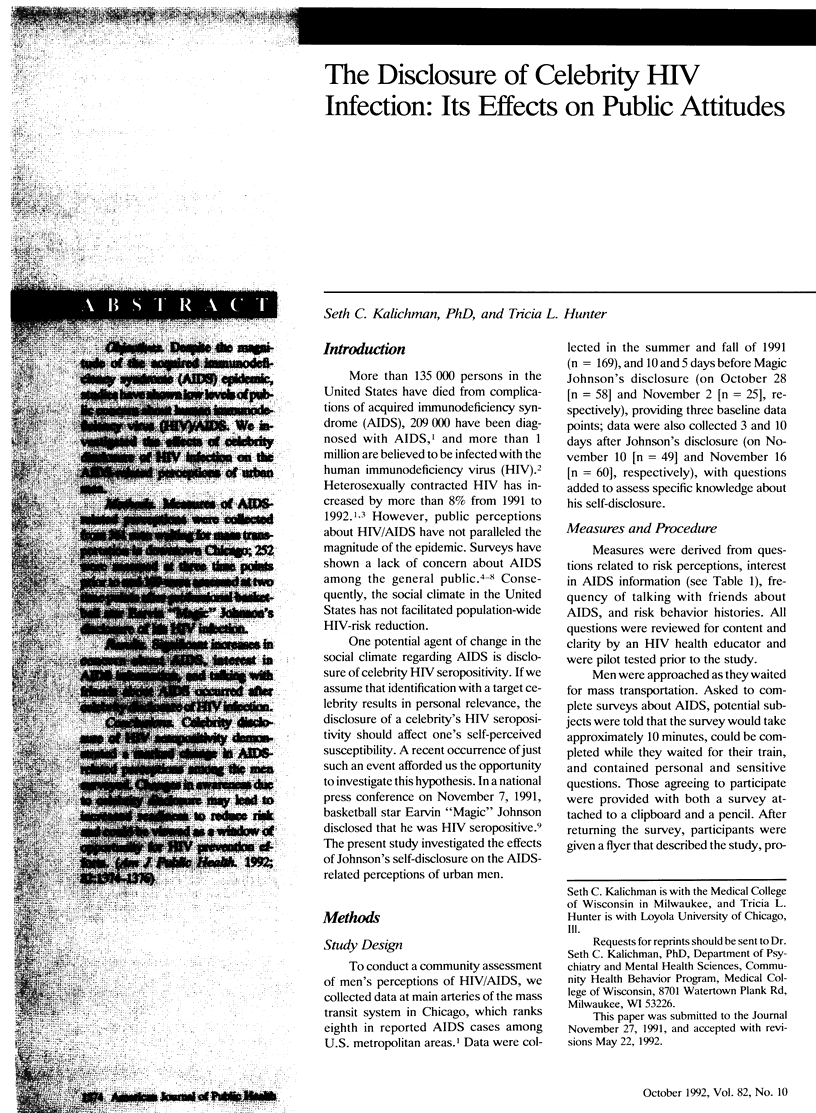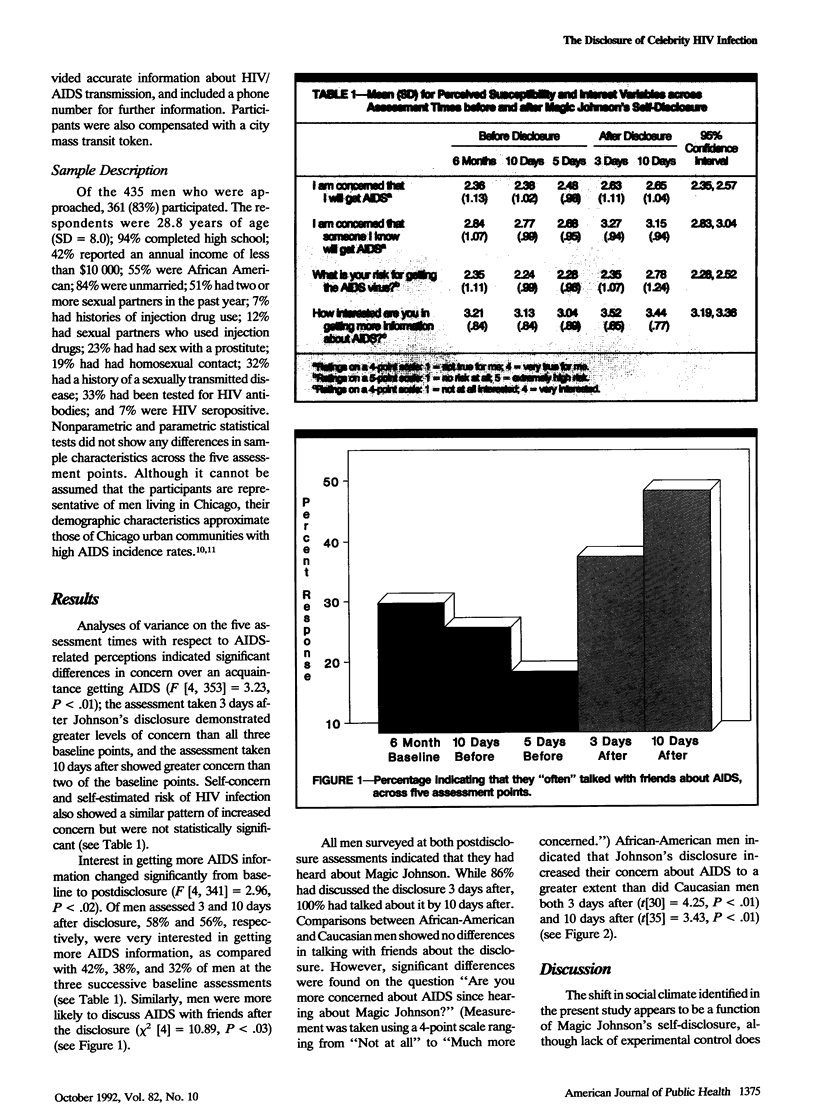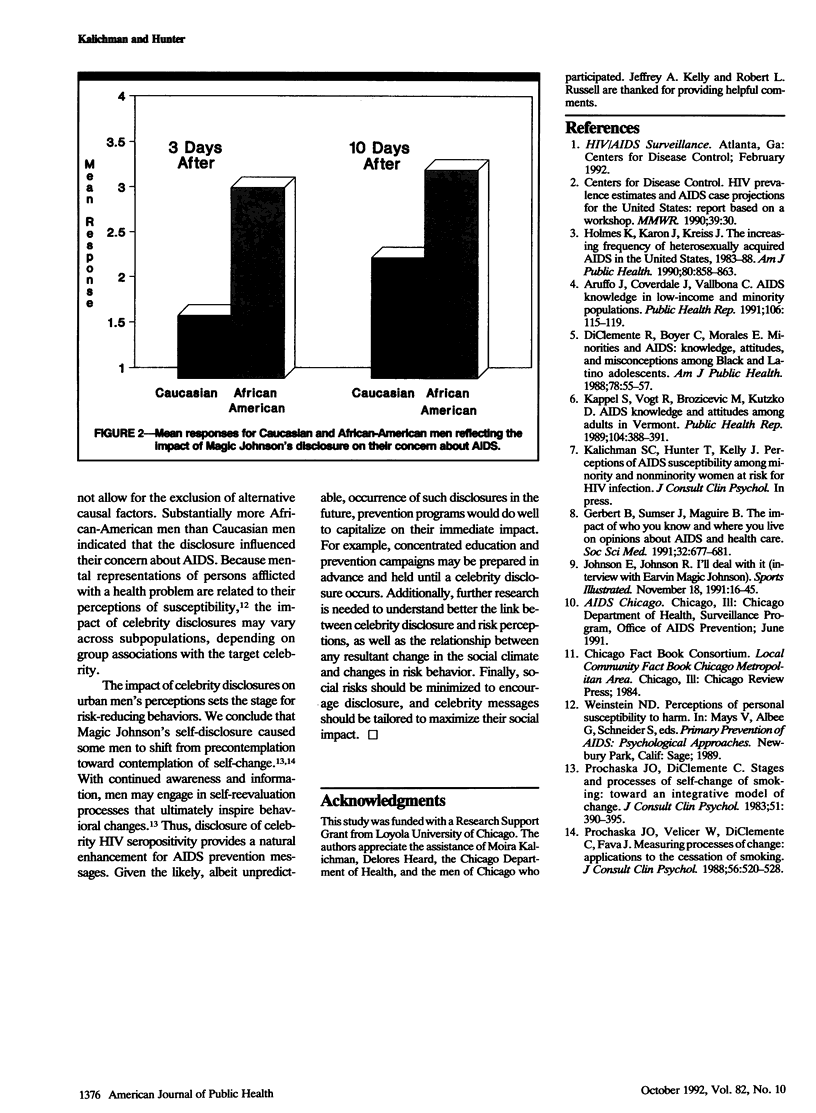Abstract
OBJECTIVES. Despite the magnitude of the acquired immunodeficiency syndrome (AIDS) epidemic, studies have shown low levels of public concern about human immunodeficiency virus (HIV)/AIDS. We investigated the effects of celebrity disclosure of HIV infection on the AIDS-related perceptions of urban men. METHODS. Measures of AIDS-related perceptions were collected from 361 men waiting for mass transportation in downtown Chicago; 252 were assessed at three time points prior to and 109 were assessed at two time points after professional basketball star Earvin "Magic" Johnson's disclosure of his HIV infection. RESULTS. Significant increases in concern about AIDS, interest in AIDS information, and talking with friends about AIDS occurred after celebrity disclosure of HIV infection. CONCLUSIONS. Celebrity disclosure of HIV seropositivity demonstrated a marked change in AIDS-related perceptions among the men surveyed. Changes in awareness due to celebrity disclosure may lead to increased readiness to reduce risk and could be viewed as a window of opportunity for HIV prevention efforts.
Full text
PDF


Selected References
These references are in PubMed. This may not be the complete list of references from this article.
- Aruffo J. F., Coverdale J. H., Vallbona C. AIDS knowledge in low-income and minority populations. Public Health Rep. 1991 Mar-Apr;106(2):115–119. [PMC free article] [PubMed] [Google Scholar]
- DiClemente R. J., Boyer C. B., Morales E. S. Minorities and AIDS: knowledge, attitudes, and misconceptions among black and Latino adolescents. Am J Public Health. 1988 Jan;78(1):55–57. doi: 10.2105/ajph.78.1.55. [DOI] [PMC free article] [PubMed] [Google Scholar]
- Gerbert B., Sumser J., Maguire B. T. The impact of who you know and where you live on opinions about AIDS and health care. Soc Sci Med. 1991;32(6):677–681. doi: 10.1016/0277-9536(91)90146-4. [DOI] [PubMed] [Google Scholar]
- Holmes K. K., Karon J. M., Kreiss J. The increasing frequency of heterosexually acquired AIDS in the United States, 1983-88. Am J Public Health. 1990 Jul;80(7):858–863. doi: 10.2105/ajph.80.7.858. [DOI] [PMC free article] [PubMed] [Google Scholar]
- Kappel S., Vogt R. L., Brozicevic M., Kutzko D. AIDS knowledge and attitudes among adults in Vermont. Public Health Rep. 1989 Jul-Aug;104(4):388–391. [PMC free article] [PubMed] [Google Scholar]
- Prochaska J. O., DiClemente C. C. Stages and processes of self-change of smoking: toward an integrative model of change. J Consult Clin Psychol. 1983 Jun;51(3):390–395. doi: 10.1037//0022-006x.51.3.390. [DOI] [PubMed] [Google Scholar]
- Prochaska J. O., Velicer W. F., DiClemente C. C., Fava J. Measuring processes of change: applications to the cessation of smoking. J Consult Clin Psychol. 1988 Aug;56(4):520–528. doi: 10.1037//0022-006x.56.4.520. [DOI] [PubMed] [Google Scholar]


